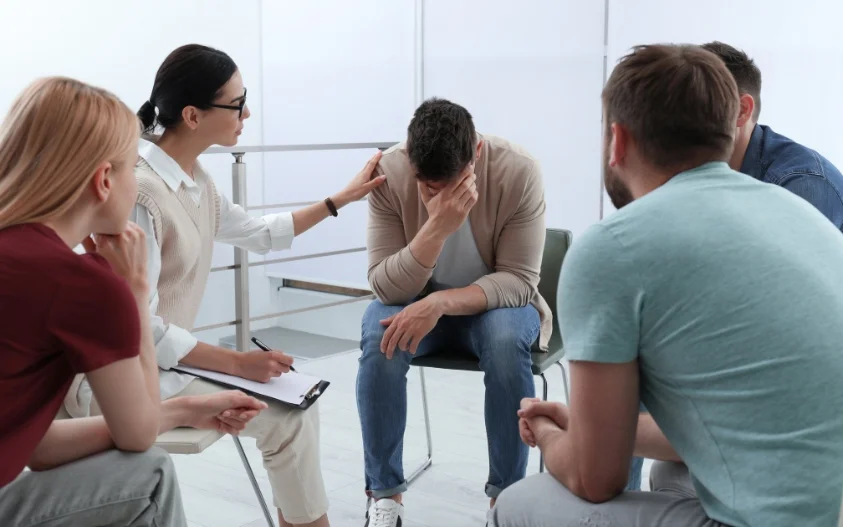24/7 Helpline:
(866) 899-221924/7 Helpline:
(866) 899-2219
Learn more about PTSD Treatment centers in Starke County

Other Insurance Options

Cigna

CareSource

Horizon Healthcare Service

Regence

Highmark

WellPoint

Ambetter

Optum

Health Partners

AllWell

Health Choice

Self-pay options

Choice Care Network

Meritain

Carleon

Absolute Total Care

Humana

Lucent

Magellan Health

Coventry Health Care










Wiregrass Apartments – Mental Health Apartments
Wiregrass Apartments – Mental Health Apartments is a private rehab located in Hamlet, North Carolina...

Sandhills Alternative Academy
Sandhills Alternative Academy is a private rehab located in Hamlet, North Carolina. Sandhills Altern...

Family First Support Center
Family First Support Center offers outpatient and intensive services for individuals with alcohol an...

























